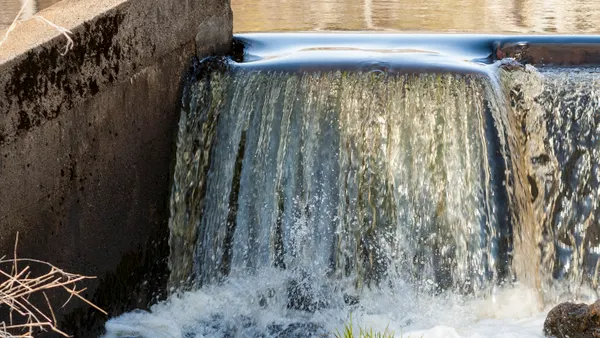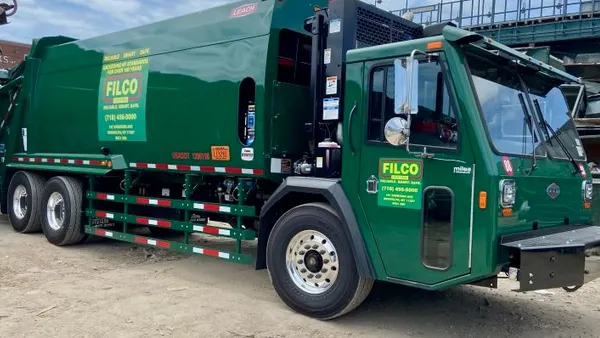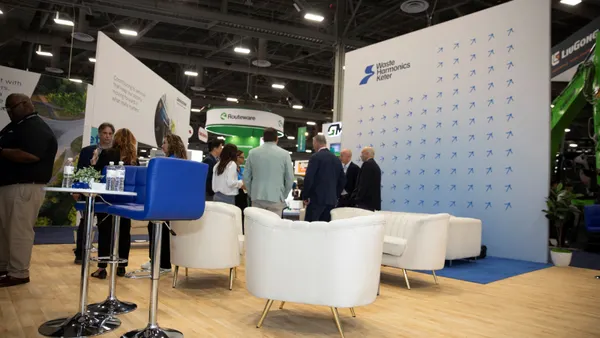Dive Brief:
- The inaugural Measurement Matters Summit in Chattanooga, TN brought together a long list of behind-the-scenes officials and professionals at a previously unprecedented scale this week. "We can’t pilot this ship without a compass," said Will Sagar, executive director of the Southeast Recycling Development Council.
- A total of 37 states and Washington, D.C. engaged in the Environmental Protection Agency's State Measurement Program during 2016, using Re-TRAC Connect, but more participation is needed and more standardized data would improve the value of those inputs. Better data can help states make the case for agency budgets, learn from other programs, show the economic benefits of various recycling policies and spot opportunities for infrastructure development.
- As it stands, many agencies or local governments don't have the budgets to collect this information — let alone thoroughly analyze it. Outdated regulations limiting those activities, or differences in terminology, are some of the many complicating factors. Getting industry sources to share this information can also be difficult in some cases, further limiting the breadth of what can be collected.
Dive Insight:
This summit, co-hosted by the EPA, SERDC and Tennessee Department of Environmental Conservation, comes nearly 10 years after eight EPA Region 4 states began discussing data sharing and collection at an annual meeting in Chattanooga.
By 2011, the states had submitted their first responses and the effort continued to grow, with assistance from the EPA. It has gained further prominence in recent years, with workshops at Resource Recycling's annual conference and interest from other states. Today, a sampling of this information can be found on Recycle Search.
Getting all states and territories, on board is the next step. From there, figuring out how to categorize the information is where the task becomes complicated. At a local level, officials emphasized the need to be flexible as states work to strengthen their data collection efforts.
"It's important to have a set methodology, but at the same time, don't be afraid to evolve your data collection process," said Wolfgang Kray from Colorado's Department of Health & Environment.
Speakers also noted states shouldn't necessarily get too caught up in this work at the detriment of delivering. Terminology that hasn't caught up with new waste streams or diversion practices can also further strain what is already a fragmented system.
"That makes this a much more complex environment," said Terri Goldberg, executive director of the New England Waste Management Officials Association. "We need to make a decision about which data is correct."
Without good, standardized data, it will be harder to have the national or regional conversations that many want to see around recycling market development, organics diversion, or anything else. Getting officials from dozens of states together in the same room to hash out their ideas could go a long way.
Manufacturers and other corporations have shown a growing interest in sustainability metrics, but so far that hasn't always translated to the more minute details of waste measurement.
"I don't think industry cares too much about local government data on that minute a level," said Trina Matta from the Sustainable Packaging Coalition. "I do think they care about that data lot once it's aggregated."
Landfills, waste-to-energy facilities, material recovery facilities, mills and other industry operations likely have plenty of their own data, but it's not always in their interest to report more than required. That information is often considered proprietary, and government intervention isn't always popular.
As with many shifts in the industry, many agree that additional resources to collect, standardize and analyze this information may not come without incentive policies or a profit motive behind it.









